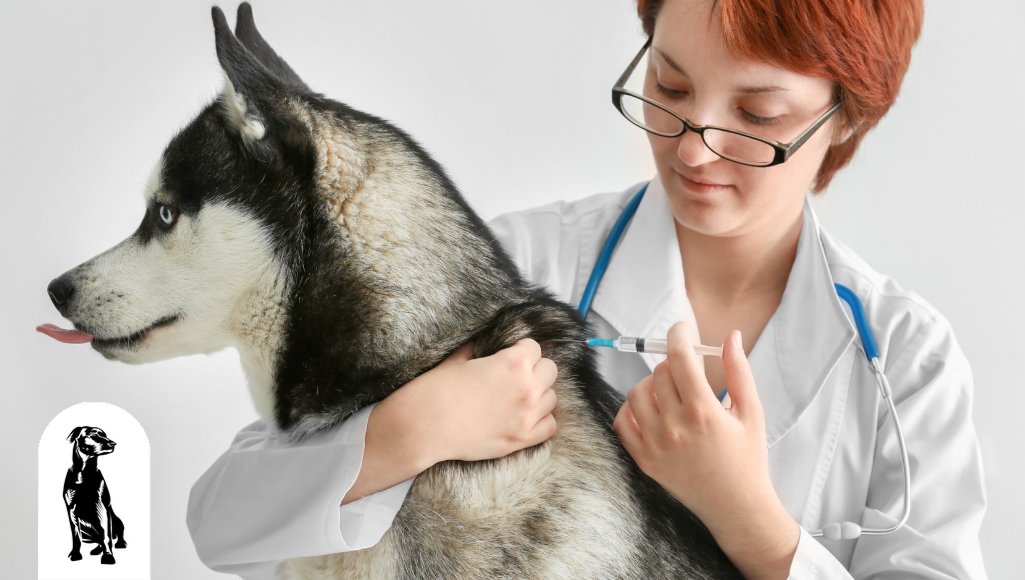
Dog vaccinations are one of the best ways to ensure your pet has a full and healthy life.
Most state laws require a small number of vaccines to prevent lethal outbreaks that could harm humans and dogs. Other vaccines are optional, their need depending on their exposure and risk of infection.
Dog vaccinations are made similarly to human vaccinations, using a weakened or deadened version of the target virus. Some vaccinations may give your dog some side effects. Otherwise, a vaccine is harmless and promotes the health of your canine.
If you are adopting a dog, check your new pet’s vaccination status and administer the needed boosters as required.
Core Vaccines for your dog
There is a shortlist of vaccines required by most states or where states and pet healthcare workers strongly recommend. These are known as “core vaccines” and include protection against some of the most contagious and dangerous diseases.
These diseases can be very deadly if contracted. Many can cause death within 24-72 hours of symptoms. Vaccines aren’t 100% effective at deterring these infections, but they can dramatically improve the symptoms and decrease the mortality rate.
Rabies
Rabies is an infamous disease that affects mammals' spinal cord and brain. It is most commonly found and spread in the wild by small animals.
It is passed from host to host through saliva. Infected animals will be uncharacteristically aggressive and may exhibit foaming in the mouth. Excessively aggravated animals may bite other animals, spreading the disease through saliva and skin puncture.
The main symptoms include:
- Fever
- Excessive drooling or foaming at the mouth
- Paralysis
- Severe aggravation or aggression
Since saliva is the primary mode of spreading the infection, rabid animals may also spread the disease by licking other animals or by drinking from and contaminating common water sources.
Even though it is one of the most vicious diseases that can infect your dog, it is 100% preventable with a vaccine. Prioritizing the rabies vaccine is essential for all dog owners.
Canine Hepatitis
Canine Hepatitis is a disease that targets blood-filtering organs such as the liver, kidney, lungs, and spleen. Additionally, some canines may experience other problems with the lining of their blood vessels.
The leading cause of the disease is viral, so pet owners can prevent it through vaccination. If your dog is infected, you may notice symptoms such as:
- A bloated belly
- Depression or apathy
- abdominal pain
- A loss of appetite
- Discharge from eyes and nose
- Jaundiced look to gums and exposed skin
Severe cases of canine hepatitis can cause fever, inflamed glands, seizures, and death. It is essential to vaccinate your dog against this viral disease.
Parvovirus
Parvovirus is a dangerous disease that attacks the digestive tract of your dog’s body. Puppies under four months are the most at risk of the virus’s lethality, but this disease can potentially harm dogs of all ages.
If infected, your dog may experience symptoms like:
- Abdominal pain
- Bloating
- Vomiting
- Bloody diarrhea
- Temperature fluctuations
There is no cure for parvovirus. The best any veterinarian will be able to do is keep your dog hydrated through an IV and support the immune system as much as possible while trying to fight off infection.
The disease can be transmitted through feces and is remarkably resilient to environmental factors, surviving in hot and dry environments for hours or days. It is important to quarantine your dog from other animals to avoid passing this dangerous disease on.
Canine Distemper
Cabine distemper attacks a dog’s respiratory, gastrointestinal, and nervous systems.
The virus is particularly hazardous because infected hosts can spread it for months after symptoms abate.
Several symptoms may arise, depending on which system the virus is primarily infecting. They include:
- Discharge from eyes and nose
- Coughing
- Fever
- Vomiting
- Lack of appetite
- Muscle twitches
- Paralysis
The symptoms of this virus can closely resemble rabies, so misdiagnosis is common. Delay in treatment can cause permanent nerve damage in your dog on recovery or may cause death.
Preventative care is the best treatment option. Dogs vaccinate before infection likely experience milder symptoms. Otherwise, treatment cannot directly combat the virus. Veterinarians will do their best to support your dog and treat symptoms, but your dog will need to fight off the infection independently.
Non-core vaccines
Some diseases are less severe, but vaccination can help prevent the worst symptoms.
Some dogs may be in environments where these diseases are more common. Consulting with your vet can help you determine the need for vaccinating your dog.
Bordetella Bronchiseptica
Bordetella Bronchiseptica is a disease comparable to bronchitis in humans. The dogs at the highest risk are those with weak lungs or the respiratory system.
Symptoms of Bordetella Bronchiseptica include:
- Dry cough
- Sneezing
- Retching
- Nasal discharge
- Pneumonia
- Loss of appetite
- Fever
Borrelia burgdorferi–lyme disease
This disease is only common where ticks are. Lyme disease comes from tick saliva, particularly after being attached for 24-48 hours.
Lyme disease is not always fatal but can cause several symptoms more annoying than not. These can include:
- Fever
- Loss of appetite
- Sore joints
- Kidney damage
- Lethargy
You can prevent ticks through environmental means–keeping your dog away from areas known to inhabit ticks–or through vaccination, if it is practical.
Leptospira bacteria
Most cases of Leptospira Bacteria infection are mild and non-lethal. However, if your dog is incapable of fighting off the disease, it can spread to vital organs such as the heart, brain, liver, and lungs. The bacteria can be lethal for dogs vulnerable to illness.
The dogs most at risk are those in a highly social environment or exposed to natural bacteria sources such as lakes, ponds, and rivers.
Some symptoms of the bacteria can be:
- Weight loss
- Loss of appetite
- Vomiting
- Dihariah
- Lack of energy
- Fever
Innoculation can help your dog avoid the disease or lessen the symptoms. Talk to your vet to see if it is right for your dog!
Pet Solutions with Plush Paws Products
Without a doubt, dog vaccinations are essential. But whether you are taking your pet out for a fun day at the dog park or need to rush your precious companion to the vet, we strive to help you make that as comfortable as possible.
As a pet owner, you strive to provide your pet with the best life you can afford. You can make that a convenient reality by using some of our quality seat covers. Shop now to find the most convenient way to care for your dog and keep your car clean.
